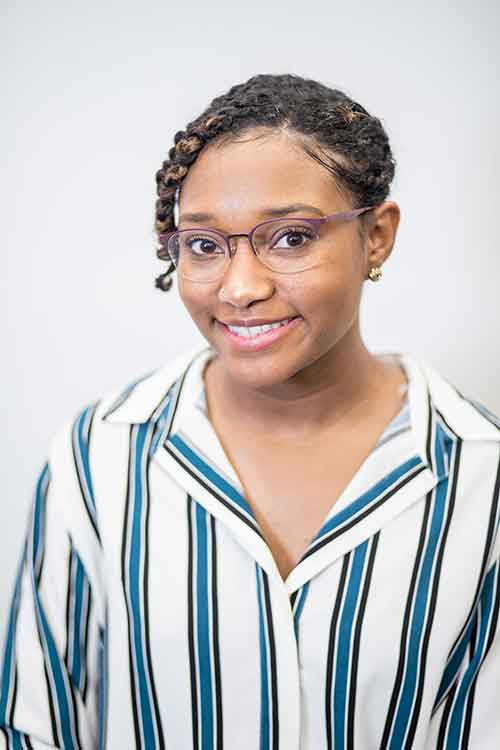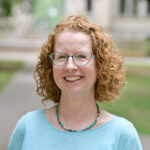
Communication studies graduate shares I.S. research as panelist on NPR station

Korri Palmer ’20, an alumna of The College of Wooster, was invited to speak about her Independent Study research as part of an American Public Square panel and subsequently on Kansas City’s NPR affiliate KCUR this month. Palmer, a communication studies major, studied how minority students use cancel culture, or the removal of emotional and financial support from a celebrity or brand they disagree with, as a form of social media activism in her I.S. People typically perform cancel culture on social media with the goal of boycotting a person or company that they believe has done something offensive.
American Public Square, a Kansas City-based community organization that fosters productive dialogue on controversial topics, invited Palmer to speak on their virtual panel “I got Canceled. What’s Next?” held on Nov. 17. Palmer enjoyed the chance to discuss her research with the other panelists, who included a social justice activist, recording artist, and someone who researches the #MeToo movement. “Because there isn’t a lot of scholarly research on these niche pop culture topics, panels are a good way to still discuss them in a very educational, thought-provoking way,” Palmer reflected.
After the panel, the radio station KCUR invited Palmer and one of her fellow panelists to speak about the topic on air on Nov. 20. Palmer explained that the segment was meant to “bring more awareness to what cancel culture is in general.”
During Palmer’s time at Wooster, cancel culture became a significant conversation topic both nationally and on campus. Celebrities like Kanye West and Bill Cosby, for example, who Palmer grew up supporting, began to be widely criticized. “I had to remove a lot of my emotional and financial support from people I grew up listening to,” Palmer said.
Palmer’s research, which included interviews with Wooster students, concluded that there are both drawbacks and benefits to cancel culture. “One of the issues is there is no room in cancel culture for education,” she explained. “There’s no room for dialogue to tell people what exactly they did wrong without screaming at them or offending them.” However, Palmer also identified that cancel culture can be helpful when it allows marginalized people to speak out against harm that they have experienced. “It does provide space for minority individuals to defend themselves and have a voice on social media platforms which is extremely important,” Palmer explained.
When Palmer first arrived at Wooster, she didn’t have a sense of what her specific research interests would be. “I didn’t really understand what it meant for a school to be based in research,” Palmer said. “I started off thinking, ‘what am I ever going to research about?’” She was, however, interested in pop culture, and eventually started writing papers on topics including Instagram and Snapchat. “It felt like there was a lane for me to also do research,” Palmer said.
Since she graduated, many people have reached out to Palmer through LinkedIn to ask to read her I.S. “I’ve been sending my thesis out everywhere,” she said. “I don’t even know how many people have it at this point.” The recent invitations that Palmer received to share her research publicly have shown her how important and relevant pop culture research is. “This experience just shows how much your research can matter and it doesn’t matter who you are,” she said. “It’s possible for anybody to find their own lane and still have success come from it.”
Posted in News on November 25, 2020.
Related Posts
Related Areas of Study
Communication Studies
Be an effective listener, writer, and speaker who can think critically and connect with audiences
Major Minor

